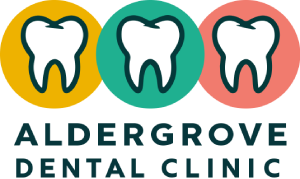Does an Emergency Dentist Extract a Tooth?

The short answer is not always, but they can. Emergency tooth extractions are usually carried out by a dentist or oral surgeon. Under local anesthetic or, in rare circumstances, under sedation, the damaged tooth is carefully removed during the process. To restore oral function and appearance following the extraction, proper aftercare instructions and prospective tooth replacement solutions, including dental implants or bridges, may be explored.
It’s vital to keep in mind that tooth extraction is normally only used as a last option after all other dental treatments have failed. To keep the tooth and maintain oral health, a dentist near you will never choose an invasive treatment option without exploring conservative choices first.
What is a Dental Emergency?
Any unexpected, severe oral health problem that necessitates prompt expert intervention to relieve pain, stop additional harm, or save a tooth is referred to as a dental emergency. Urgent treatment is sometimes required in these circumstances since they frequently develop unexpectedly and may take place outside of typical dental office hours.
Oral emergencies may happen for an array of reasons, including accidents, wounds, infections, and problems with pre-existing dental conditions. Examples of frequent dental emergencies include:
- Severe toothache
- Knocked-out tooth
- Fractured or broken tooth
- Lost dental filling or crown
- Dental abscess
- Uncontrolled bleeding
- Jaw fracture
Why are Emergency Tooth Extractions Needed?
Emergency tooth extractions are sometimes necessary in situations where a tooth cannot be saved or poses a significant risk to oral health. There are several reasons why emergency tooth extractions may be needed:
1. Severe Tooth Decay: If a tooth has extensive decay that has compromised its structure and integrity, it may need to be extracted to prevent further damage and infection.
2. Dental Infection or Abscess: An infected tooth or a dental abscess can cause severe pain, swelling, and potential systemic complications. In some cases, the infection may be too advanced for root canal treatment or antibiotics to be effective, necessitating an emergency extraction.
3. Advanced Gum Disease: When gum disease reaches an advanced stage, it can lead to significant damage to the supporting structures of the tooth, including the bone and ligaments. If a tooth becomes loose or is at risk of falling out due to gum disease, extraction may be necessary.
4. Impacted Wisdom Teeth: Wisdom teeth, also known as third molars, can become impacted (trapped beneath the gum line) or grow at an angle that affects neighbouring teeth. Impacted wisdom teeth can cause pain, infection, and damage to adjacent teeth, necessitating their extraction.
5. Trauma or Injury: A tooth that has suffered severe trauma, such as a fracture or dislocation, may require emergency extraction if it cannot be salvaged through other dental treatments.
6. Orthodontic Treatment: In some cases, tooth extraction may be necessary as part of orthodontic treatment to create space for proper tooth alignment and bite correction.
What To Know if You Need an Emergency Tooth Extraction
There are a few crucial things you should be aware of and take into account if you find yourself in a scenario where an emergency tooth extraction is required. Here’s some advice:
- Seek Immediate Dental Care: Contact your emergency dentist in West Edmonton as soon as possible to schedule an emergency appointment.
- Inform the Dentist About Your Condition: Provide a detailed description of your symptoms and any visible damage or signs of infection.
- Understand the Reasons for Extraction: Your dentist will explain why the tooth needs to be extracted and help you make an informed decision.
- Discuss Anesthesia and Sedation Options: Talk to your dentist about anesthesia and sedation options to ensure your comfort during the procedure.
- Inquire About Tooth Replacement Options: After the extraction, discuss options like dental implants or bridges for replacing the missing tooth.
- Follow Pre-Extraction Guidelines: Follow your dentist’s instructions for fasting, medication, and oral hygiene before the procedure.
- Understand the Post-Extraction Care: Your dentist will provide instructions for pain management, swelling reduction, oral hygiene, and dietary restrictions.
- Communicate Any Concerns: Don’t hesitate to share any concerns or questions with your dentist in Edmonton for reassurance and guidance.
Visit a Dentist You Can Trust
When facing such distress and discomfort, it is essential to pick a dentist that is skilled in dealing with dental emergencies near you. At Aldergrove Dental Clinic, we prioritize trust, respect, and open communication with our patients. Our skilled team provides exceptional dental care in a comfortable environment.
Whether it’s a routine check-up, emergency care, or a cosmetic service, our staff will listen, explain options, and create a customized dental plan for you. We’re committed to excellence; you can have confidence in the care you receive. Your dental health is our top priority, and we strive to create a positive experience for every patient.
To gather more information, get in touch with us today!
